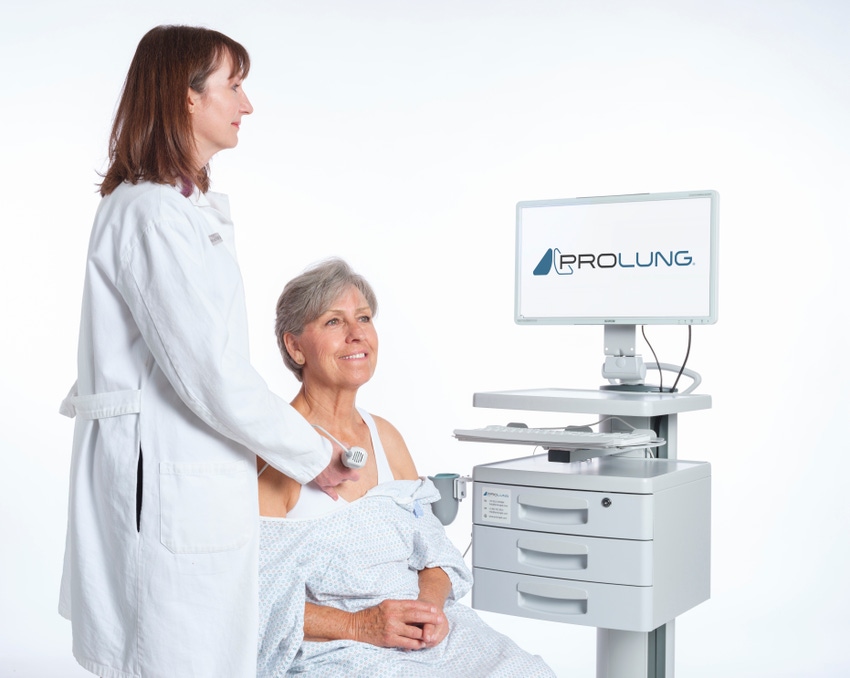ProLung is hoping to change the way lung cancer is detected through its test that measures the difference in conductivity between malignant and benign lung tissue.
April 30, 2018

Three years ago, the U.S. Preventative Services Task Force and Centers for Medicare and Medicaid Services added annual screening for lung cancer with low dose computed tomography as a covered Medicare benefit for patients meeting certain criteria. The measure opened up the door for companies like Salt Lake City, UT-based ProLung hoping to take part in the lung cancer detection market.
The company’s test uses volume-averaging bioconductance technology to measure the difference in conductivity between malignant and benign lung tissue. The data is analyzed to produce a personalized and predictive score indicating the likelihood that a particular lesion in the lungs is malignant.
ProLung said the noninvasive, radiation-free test is for use at the front end of lung cancer screening and could be used as an adjunct to low-dose CT screening. The test could improve the timeliness and cost of lung cancer diagnosis.
“We’re not a blood specimen and we’re not a CLIA or laboratory developed test that’s limited to a state by state approval, Steven Eror, president and CEO of ProLung told MD+DI. “We’re involved in a fresh technology that has the ability to ascertain the likelihood of the differences between the malignant and benign nodules in the chest.”
Eror added, "we’ve always known that while CLIA is an option for some it lacks the ability to survive the reimbursement round. We’ve always had our eye on the FDA."
The firm’s test includes a probe, scanner, tower, monitor and keyboard, and a test kit that includes a unique code, six diaphoretic electrodes with adhesive backing, a probe tip, and other ancillary disposables.
ProLung’s test might not have approval from FDA but it has already obtained CE mark.
“Europe is a vastly smaller market because they are not screening,” Eror said. “They’re only relying on the smaller population of incidentals in large measure. For that reason our purpose is to really focus on being one of the first risk applications approved by the FDA for the U.S. market.”
ProLung was launched in 2004 as Fresh Medical Laboratories. About a year ago, the company changed its name to keep more in line with its mission for lung cancer detection.
About the Author(s)
You May Also Like




